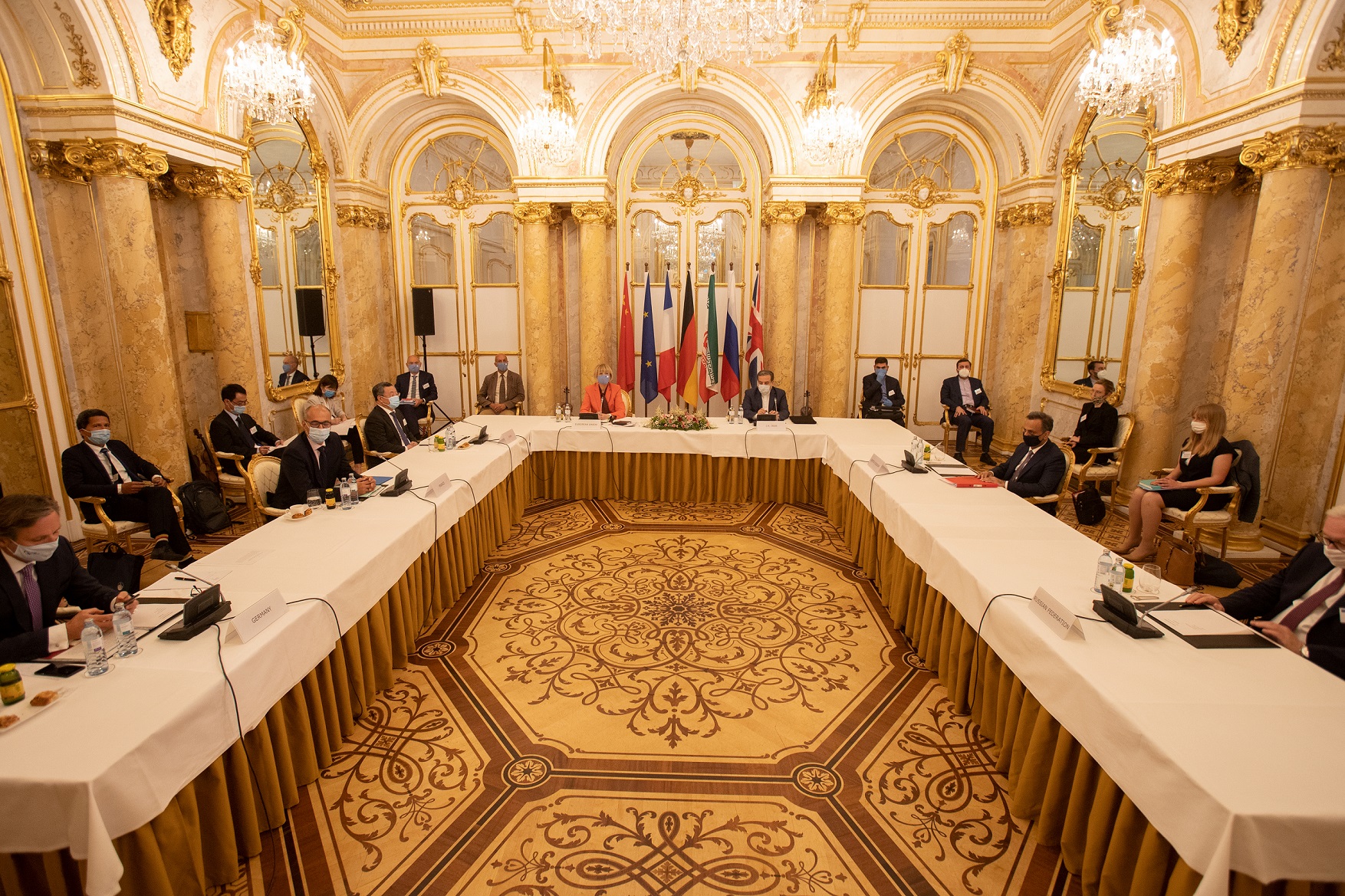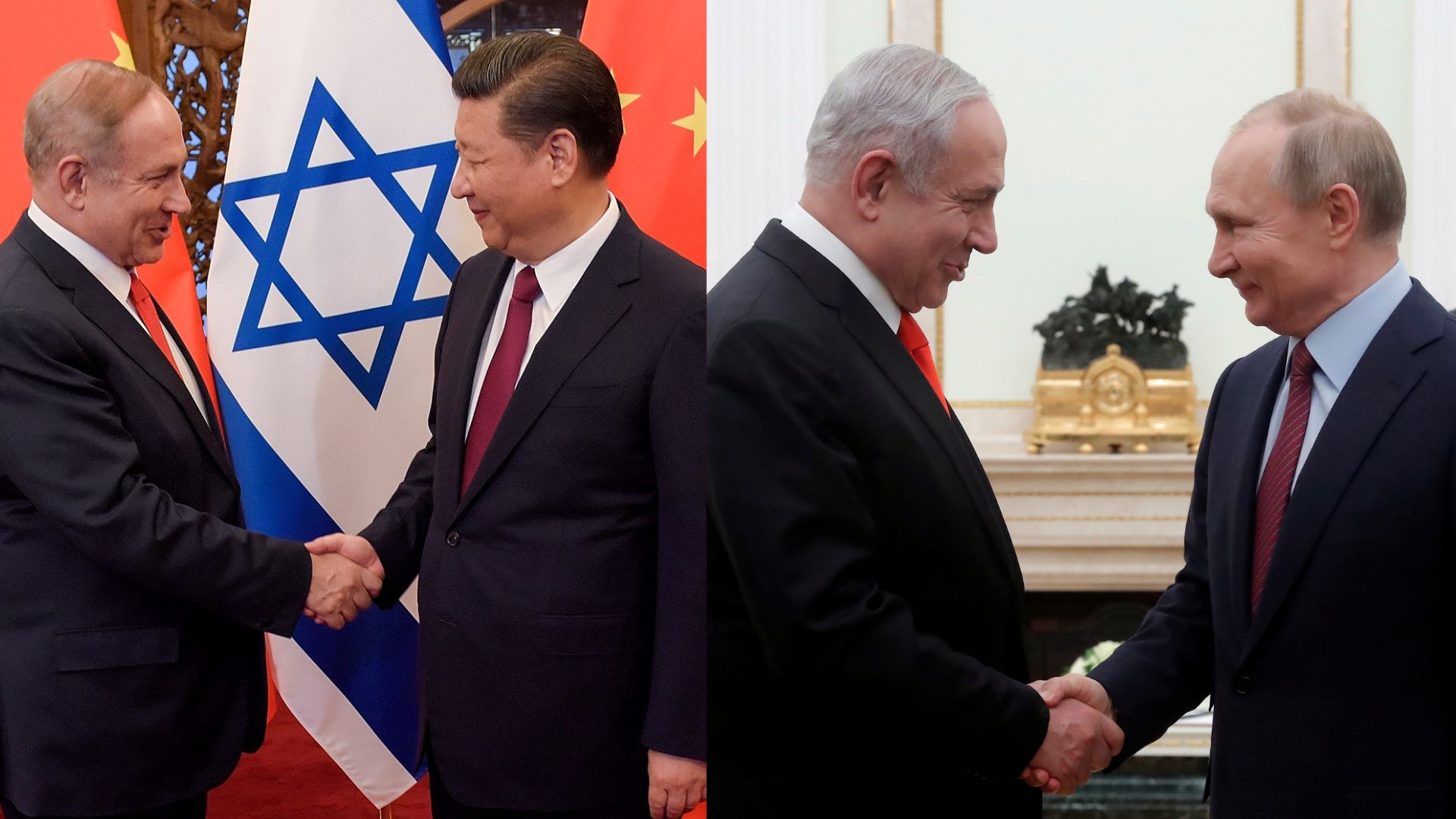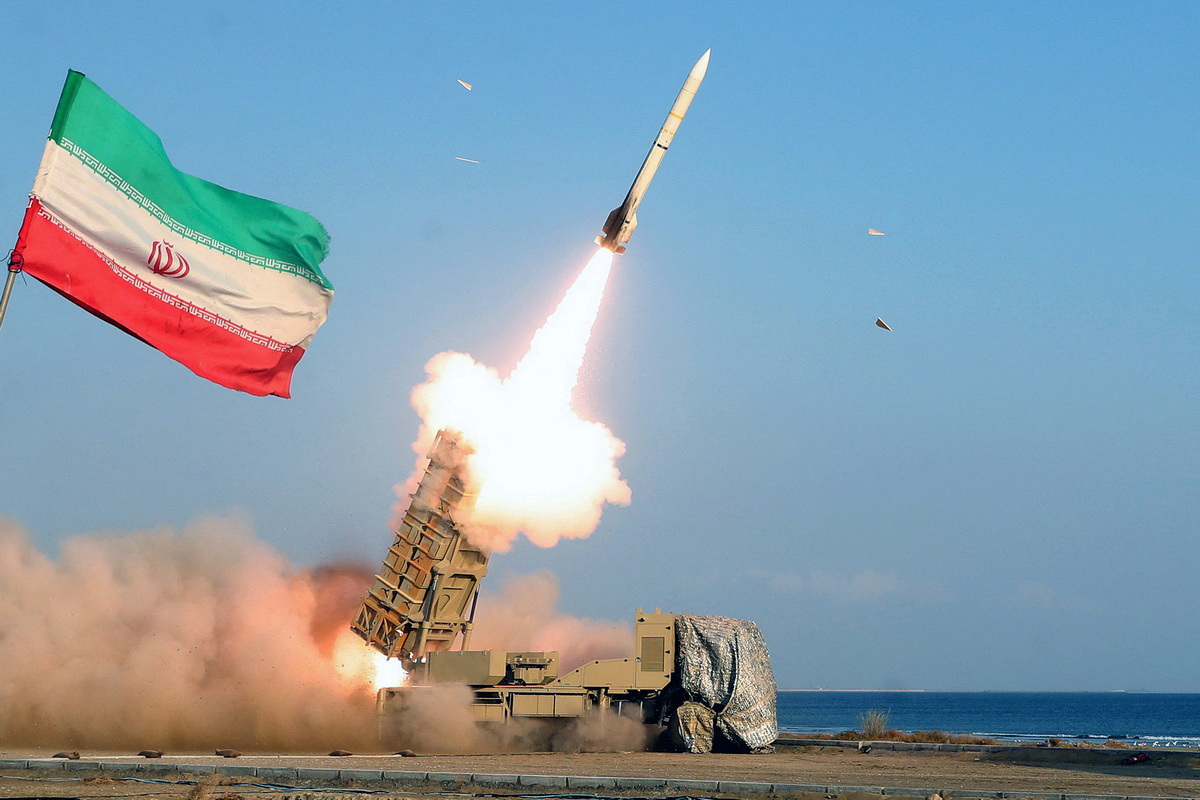Strategic Overview: Geopolitical Shocks Meet Intensifying Domestic Challenges
Manuel Trajtenberg
The Palestinian Arena: Reshuffling the Cards
Udi Dekel, Anat Kurz, and Noa Shusterman
As we look back at 2022, we can clearly discern the acceleration of key global and internal trends that pose serious challenges to Israel’s national security and call for a revision of existing policies. Some of these trends reached a clear turning point in the course of past year, while others continued to evolve gradually, making it more difficult to question prevailing strategies, despite the dangers inherent in clinging to them. Among those processes that took a sharp turn, three stand out:
- The heightened competition between China and the United States, which has turned into an overt conflict between the two great powers, thus becoming the key factor shaping the global geopolitical arena.
- Russia’s belligerence toward Ukraine, which has simmered since Russia annexed the Crimean Peninsula in 2014, turned into a full-scale war a year ago, and upended in one stroke the Pax Europaea that had reigned in the continent since the end of World War II.
- Iran’s relentless pursuit of military nuclear capabilities, which advanced to the point of Iran becoming a de facto nuclear threshold state, without the restraints of the JCPOA agreement, and without a credible military deterrent from the United States.

Iran has become a de facto nuclear state. Negotiations on a return to the agreement in Vienna
Photo: European Commission EbS – EEAS/Handout via REUTERS
These developments are closely intertwined and upset basic assumptions underlying Israel’s foreign and security policy. Thus, the competition between the United States and China, as well as Russia’s invasion of Ukraine, compels Israel to choose sides, whereas in recent years Israel benefited from maintaining extensive relations with both China and Russia. The increasing pressure on Israel to “pivot” in that respect poses weighty dilemmas, and a resulting change in policy could significantly reduce Israel’s geopolitical room for maneuver. Furthermore, the United States is sharply focused on the conflicts with China and with Russia, and thus is much less inclined to further its involvement or to take initiatives in the Middle East.
The greatest threat to Israel is undoubtedly the fact that Iran has become a de facto nuclear threshold state (albeit without the formal label), while continuing its entrenchment efforts throughout the region. In addition, the cooperation between Tehran and Moscow in the war in Ukraine poses a significant challenge, since Russia may compensate Iran with advanced weapons and political and economic backing.
The fact that these ominous trends have reached a critical point carries at least one perceptual benefit, namely, clarity. The lingering doubts that often accompany slow-moving processes dissipate under the unequivocal nature of concrete developments. Thus, the fact that Iran already possesses uranium enriched to 60 percent that suffices for more than one nuclear device, as well as that Russia displays blatant aggression in Ukraine, leaves no doubts regarding the intentions behind these actions or their fateful consequences.

The competition between the United States and China, as well as Russia’s invasion of Ukraine, compels Israel to choose sides. Prime Minister Netanyahu in meetings with Chinese President Xi and Russian President Putin
Photos: REUTERS
At the same time, important developments within and around Israel have continued to run a perilous course this past year even if not reaching criticality yet, particularly in three domains:
- The Palestinian Arena
The Palestinian Authority (PA) continued to weaken and to lose control on the ground, particularly in the northern West Bank, and the end of the era of Mahmoud Abbas as chairman of the PA is rapidly approaching, without there being an apparent successor or a mechanism for an orderly transfer of power. The vacuum within the PA’s controlled areas, alongside the lack of a political horizon, led to a dispersed wave of terrorist attacks and the rise of violent local organizations such as the Lion’s Den. These in turn forced the IDF to step up its operations in PA areas, and significantly increased the potential for an outbreak of a large-scale conflict. At the same time, Jewish settlement activities in the West Bank continue apace, with Israel gradually sliding into a de facto one-state reality. This precludes options for any future agreement and challenges Israel’s identity as a Jewish and democratic state. The dangers inherent in these processes are likely to intensify under Israel’s new government, which explicitly advocates expanding Israel’s presence throughout the territories, and even annexing them.
- Israel’s Internal Conflicts
Tensions within Israeli society increased greatly in the past year, accompanied and abetted by polarization and radicalization in the political sphere. The coalition formed following the November 1, 2022 elections propounds a sharp right wing agenda, which is seen by a significant portion of the public as extreme, and even as threatening the ethos of the Israel as a Jewish and democratic state. Meantime, Israeli society is more divided than ever, particularly after four years of political instability, incitement, and reciprocal delegitimization. These developments raise troubling questions about the ability to preserve the foundations of Israel’s democratic regime, the independence of the judiciary, the balance between state and religion, and individual rights. The question marks represent a clear threat to Israel’s national security, both in view of the potential for violent outbreaks, as in Operation Guardian of the Walls (May 2021) and the weakening of the sense of solidarity and identification with the collective, which are critical for coping with Israel’s external security challenges.
- Relations with the United States and American Jewry
The special relations with the United States, which are a mainstay of Israel’s national security, are currently challenged both by internal social-political trends in the US, and by American Jewish communities distancing themselves from Israel, partly in response to developments within Israel. The growing strength of the progressive faction in the Democratic Party on the one hand, and the right-wing rebuff of the “elites” (which include a significant portion of American Jews) on the other hand, have undermined both the bases of support for Israel and the standing of the Jewish communities there. The declining US interest in the Middle East, alongside the establishment of a distinctly right wing government in Israel at a time when the US administration promotes a liberal agenda, further intensifies the alienation. These processes threaten to erode the traditional US support for Israel in all spheres – political, military, and economic – and thereby damage Israel’s international and regional standing, its economic strength, and even its ability to cope with the primary threat, Iran.

Israeli society is more divided than ever, particularly after four years of political instability, incitement, and reciprocal delegitimization.Outside a voting booth in the 2022 elections
Photo: Matan Golan/Sipa USA
These ominous developments vis-à-vis the Palestinians, trends within Israel, and Israel’s relations with the United States also tend to feed each other: events in the West Bank resonate inwards and increase the tensions and the political radicalization in Israel, which in turn prevent a serious, informed discussion of the Palestinian issue. Furthermore, events in the West Bank and within Israel negatively influence the attitudes of the US administration and of the American Jewish communities, and their distancing from Israel in turn feeds the internal polarization within Israel.
However, unlike the clear turning points in the global geopolitical theater, the strife in the Palestinian arena, the tensions within Israel, and the strained relations with the United States have not yet reached a critical point. Their gradual progression leaves room for denial and strengthens the reluctance to address the serious dangers they entail. “It’s not so bad,” claim those who tend to ignore the dire implications of these trends, and in so doing justify existing policies (such as “managing the conflict” with the Palestinians) and the lack of initiative to break the impasse.
By contrast, there is no doubt that the Abraham Accords have created a new and promising regional reality. In such context, Israel is moving away from its image as a “villa in the jungle,” gradually coming to be seen as a sort of regional power seeking to integrate in the region in the realm of security, the economy, innovation, water, energy, and climate change. Beyond the clear benefits to emanate from the deepening relations with the countries that have signed the Accords, the normalization process entails considerable further potential, both for expansion to additional countries and as a channel for improving relations with Jordan and Egypt. Nevertheless, realizing this potential depends to a significant extent on Israel’s conduct vis-à-vis the Palestinians, and on the nature of its relations with the United States.
At the outset of 2023 Israel thus faces a series of converging and troubling trends: major geopolitical changes that narrow Israel’s room to maneuver; a much greater Iranian threat; multidimensional deterioration in the West Bank; internal political polarization that erodes the democratic fabric and may unravel social cohesion; and incipient fissures in the relations with the United States and with the American Jewish community.
There is no doubt that the Iranian threat is the most significant and serious of them all, yet Israel does not have a satisfactory response to it, at least not in the short to medium term, and its ability to exert influence in the international arena so as to mitigate the threat is limited. Any course of action that Israel might try to advance vis-à-vis Iran, such as posing a credible military threat, or advocating the exercise of the “snapback” clause by European countries, would require solid backing and cooperation with the United States. If compelled, Israel will always be able to operate alone, but every effort should be made not to reach such scenarios, for obvious reasons.

There is no doubt that the Iranian threat is the most significant and serious threat facing Israel.
Missile launch during an Iranian military exercise
Photo: Iranian Army/WANA (West Asia News Agency)/Handout via REUTERS
The clear corollary of this predicament is that Israel should work relentlessly to improve its relations with the United States, and to secure an intimate and trustworthy dialogue with the administration and with Congress. It should also deepen and expand the ties and understandings with American Jewish communities, which are a key source support and of influence on United States policy.
With regard to the internal situation in Israeli and to the Palestinian issue, it is doubtful that the new Israeli government will be willing or able to undertake policies aimed at mitigating the negative trends already underway. Notwithstanding possible political overtones, the role and indeed the duty of the INSS is to flesh out the foreseeable consequences of inaction regarding ongoing trends, such as a violent outbreak in the West Bank; an intensification of internal polarization and dissent; or a deterioration in relations with the United States that might affect Israel’s ability to face Iran.
As for the longer term, the gradual blurring of demographic, economic, and legal boundaries between Israel and the West Bank poses a real danger to the Jewish and democratic character of Israel, and thus to the entire Zionist enterprise. The potential erosion of the cornerstones of Israeli democracy, in particular the weakening of the judiciary and of the checks and balances between the branches of government, constitutes a similarly severe threat.
This year marks the 75th anniversary of the establishment of the State of Israel, which is a proper occasion to pay tribute to Israel’s enormous achievements in so many areas. Yet it is also incumbent upon us on this very occasion to sound a sobering warning regarding the perilous trends, internal and external, that challenge Israel’s national security. Compounding the uncertainty posed by these trends, the policies that the new Israeli government may enact, beyond its fiery rhetoric, are also a source of great concern.
The main conclusions that arise from our Strategic Analysis for Israel 2023 are:
- The criticality of maintaining and strengthening relations with the United States as an overall organizing principle in shaping Israel’s foreign and security policy, particularly with regard to the Iranian threat.
- The imperative to recognize the dangerous consequences of divisive trends within Israel and vis-à-vis the Palestinians, and hence the urgent need to reflect and seek novel strategies.
Israel has repeatedly proven able to step back from the abyss and change direction at decisive junctures; we firmly believe that we will be able to do so now as well. We have no choice.


